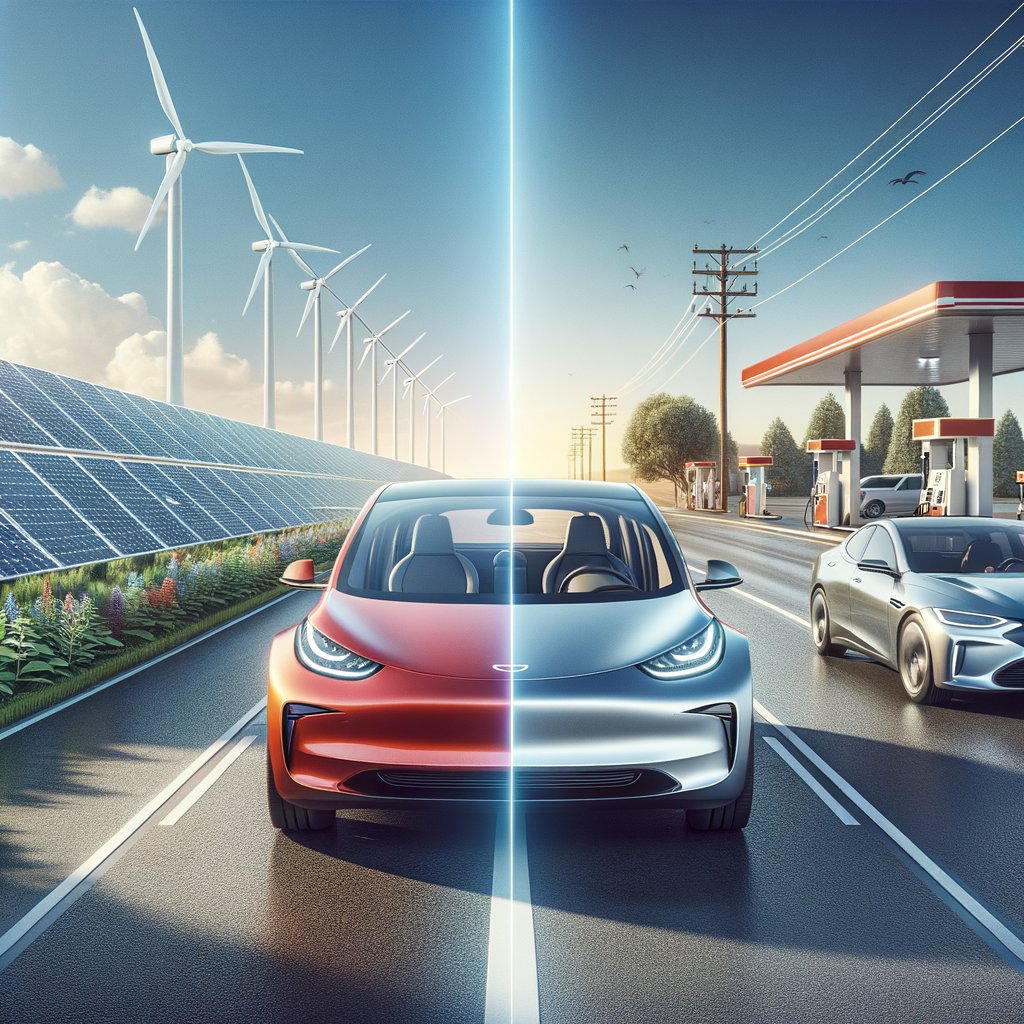Physical Address
304 North Cardinal St.
Dorchester Center, MA 02124
Physical Address
304 North Cardinal St.
Dorchester Center, MA 02124

As we steer towards a more sustainable future, the automotive industry is undergoing a significant shift. The spotlight is now on electric and hybrid cars, two environmentally friendly alternatives to traditional petrol or diesel-powered vehicles. But what sets them apart? In this article, we delve into an in-depth comparison of electric and hybrid cars, examining their performance, cost-effectiveness, environmental impact, and more.
Before we dive into the comparison, it’s crucial to understand what defines these two types of vehicles. Electric Vehicles (EVs) are powered entirely by electricity stored in high-capacity battery packs. They produce zero tailpipe emissions and can be charged at home or public charging stations.
On the other hand, Hybrid Electric Vehicles (HEVs) utilise both an internal combustion engine and an electric motor. The car automatically switches between these power sources depending on driving conditions. HEVs cannot be plugged in to recharge; instead, they generate electricity through regenerative braking and the internal combustion engine.
The performance of EVs compared to hybrids largely depends on specific models and brands. However, generally speaking, EVs tend to offer quicker acceleration due to their instant torque delivery. Electric motors can provide maximum torque from a standstill, which results in brisk acceleration times that many petrol-powered cars struggle to match.
In contrast, hybrids often have less impressive acceleration due to their heavier weight resulting from housing both an engine and an electric motor. However, they typically excel in offering smoother transitions between low-speed city driving and high-speed highway cruising.
One of the main advantages of EVs is their lower running costs compared with traditional vehicles – including hybrids. Electricity is cheaper than petrol, and EVs have fewer moving parts, which translates to lower maintenance costs. However, the initial purchase price of electric cars tends to be higher due to the cost of battery technology.
Hybrids offer a middle ground in terms of running costs. They are more fuel-efficient than conventional cars but less so than fully electric vehicles. Initial purchase prices for hybrids are typically lower than those for EVs but higher than traditional petrol or diesel cars.
Both electric and hybrid vehicles significantly reduce greenhouse gas emissions compared to conventional cars. However, EVs edge out hybrids in this regard as they produce zero tailpipe emissions. The environmental footprint of an electric car also continues to decrease as the electricity grid becomes greener.
While hybrids do emit some CO2 when the petrol engine is in use, their overall emissions are still much lower than those from conventional vehicles. Furthermore, by recovering energy during braking that would otherwise be wasted, hybrids optimise energy use and further reduce emissions.
The battery life of an EV depends on its capacity and how it’s driven – just like fuel economy in a petrol car. Most modern electric cars can travel between 150-300 miles on a single charge. Charging an EV can be done at home using a dedicated charger or at public charging stations.
Hybrid batteries also have a lifespan that varies depending on usage patterns and other factors. Unlike EV batteries, however, they cannot be charged externally; instead, they recharge through regenerative braking and by the internal combustion engine while driving.
In conclusion, both electric and hybrid cars offer viable alternatives to traditional vehicles with their own unique advantages. Your choice between the two will depend on your driving habits, budget, and personal priorities. If you’re seeking the lowest emissions and running costs, an EV could be your best bet. However, if you want a balance between fuel efficiency and versatility without range anxiety, a hybrid might be more suitable.
Regardless of your choice, both options represent a step towards reducing our carbon footprint and embracing a more sustainable future in automotive technology.